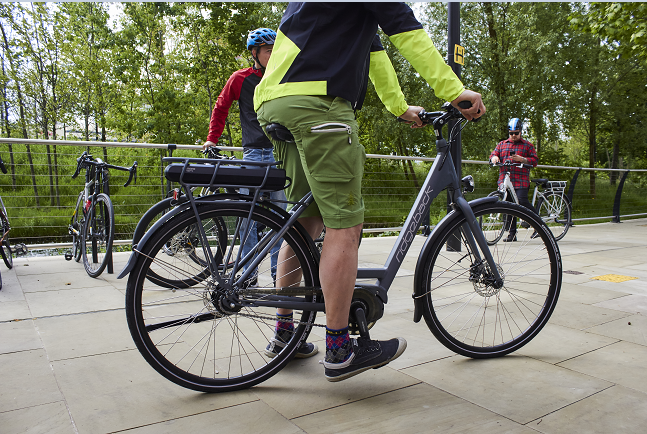E-bike trials shift transport choices away from cars
Posted on in Cycles News
The availability of e-bikes play a significant role in shifting transport choices away from cars.
Convincing people to switch from cars to more environmentally friendly transport is challenging. One strategy trialled in Switzerland is the annual Bike4Car promotion, in which car owners could try out an e-bike for free over a two-week period in exchange for their car keys.
 Participants' views were surveyed immediately after they signed up to the trial. One year later, the same group completed a follow-up questionnaire.
Participants' views were surveyed immediately after they signed up to the trial. One year later, the same group completed a follow-up questionnaire.
Analysis showed that the e-bike trial induced long-term changes in the mode of transport that came to mind when participants considered nine scenarios, including "visiting a friend in the closest city", "commuting to work", "going shopping" and "visiting the mountains with friends for a day".
People who took part were keen to experience the new mode of transport, which can be faster than conventional bicycles and allow riders to travel much larger distances. Participants also looked forward to having fun and becoming healthier. Typically, thoughts of improving transport efficiency or protecting the environment were lower down the list of motivations.
"We think that this is because increased health, fitness or fun has direct implications for our personal lives and wellbeing while energy-efficiency and environmental protection are much more abstract and distant concepts to many people," said Corinne Moser of Zurich University of Applied Sciences.
Examining the longer-term effects of the trial revealed some extremely promising results.
"After one year, participants' habitual association with car use had weakened significantly," said Moser. "What's more, we observed this not just for participants who decided to buy an e-bike once the free trial was over, but also for those that did not."
After the end of the programme, participants were offered a coupon to purchase an e-bike for a reduced price. By November 2015 (just two months after the trial had finished) 10% of participants used their coupon to buy an e-bike.
Providing access to e-bikes helped people discover new paths and routes, and opened the door to thinking about alternative forms of transport.
The researchers conclude that e-bike trials such as Bike4Car have the potential to break mobility habits and contribute to more sustainable mobility patterns, which is an important breakthrough.
"With many other interventions - such as providing a free one-month travelcard for public transport - participants quickly revert to their previous behaviour once the campaign is over," said Moser.
The big take away from this research is the impact trying an e-bike has on encouraging usage. The majority of consumers won't have tried an e-bike before, but as this study shows, once they try it they are more likely to go on to purchase one. For more tips on selling e-bikes, as well as information on regulations and laws surrounding the sale of electric bikes, check out the ACT's Guide to e-bikes.
